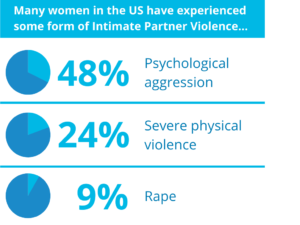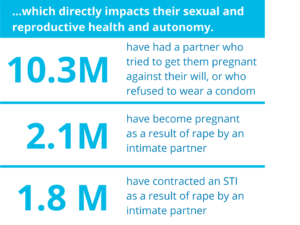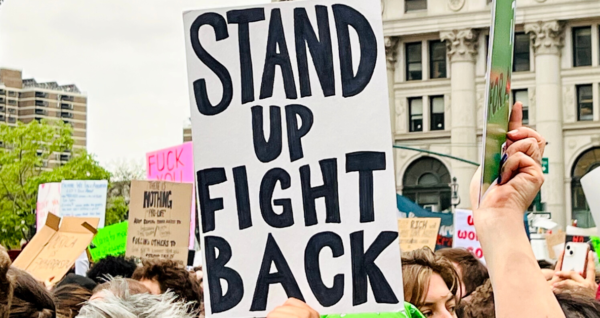In light of the Supreme Court’s overturning of Roe v. Wade, it is vital to bring awareness to the correlation between intimate partner violence (IPV) and pregnancy — and highlight the devastating consequences of restricting access to safe and legal abortion for survivors.
In the US, homicide is the leading cause of death among pregnant women, and 1 in 6 pregnant women are abused by a partner. Pregnant survivors of abuse are at a 37% higher risk of developing obstetric complications.
Too often, violence and pregnancy go hand in hand — unplanned pregnancies increase the risk for violence, and violence increases the risk for unplanned pregnancies. One study found that a woman’s odds of experiencing IPV rose by 10% with each pregnancy.
It is important to note that pregnancy is not always consensual. 10.3 million women have had a partner who tried to get them pregnant against their will or refused to wear a condom, and 2.1 million have become pregnant due to rape by an intimate partner.
 |
 |
Source: Centers for Disease Control and Prevention (CDC)
This is called reproductive coercion — an abuser’s attempt to control their partner’s reproductive health. The abuser may engage in reproductive coercion as a means to maintain control and power in the relationship, and it can manifest in behaviors such as:
- Interfering with or manipulating birth control methods, such as withholding a partner’s birth control pills or intentionally breaking/removing condoms during sex
- Forcing a partner to get pregnant, carry a pregnancy to term, or terminate a pregnancy against their will
- Coercing a partner to have unprotected sex
Lack of reproductive autonomy further tethers victims to their abusers, making it harder than it already is to leave an abusive relationship — for instance, a victim may stay with their abuser if they are the only means of financial support for the child.
Access to safe and legal abortion is imperative in putting an end to reproductive coercion and IPV. Between 6% to 22% of women terminate their pregnancies because they are in an abusive relationship, and 34% of survivors report that their abusive partners limited their childbearing decision.
The overturning of Roe v. Wade will make obtaining abortion care difficult for those whose abusive partners control their decision-making, finances, and daily lives. It will disproportionately affect women of color, who also experience higher rates of IPV, and maternal and infant mortality, and are more likely to die from unsafe, illegal abortions.
Reproductive autonomy is a lifeline — a chance to break free from a cycle of violence. A society that supports the right to choose means a society with less violence and more empathy and resources for survivors.
